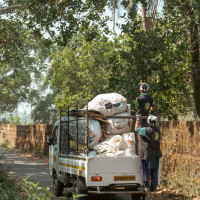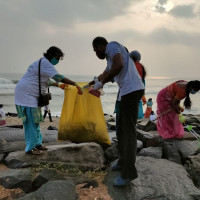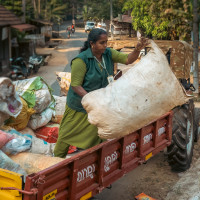At Toshiba, we deeply understand the importance of reducing plastic pollution. The excessive use of plastic has far-reaching consequences:
Founded in 2020, CleanHub is a Berlin-based company that provides a scalable solution to plastic pollution. They connect coastal communities to proper waste collection where it didn’t exist before and create safe and dignified jobs in local communities.
Brands can support the mission by funding the collection of waste that otherwise wouldn’t be collected. CleanHub’s AI technology tracks the entire process from collection to disposal, ensuring transparency. It’s verified by TÜV SÜD according to ISO standards.

For more information, visit www.cleanhub.com.
CleanHub is committed to eliminating plastic waste in some of the world’s most polluted areas. By supporting their efforts, we help drive action in the largest pollution hotspots, promote sustainable waste management solutions developed in collaboration with local communities, and ensure full transparency through the tracking of all collected plastic waste. In addition, CleanHub creates jobs, empowering residents while protecting ecosystems and marine life from the negative impacts of plastic pollution.
No Poverty (SDG 1): CleanHub creates jobs in low-income areas by partnering with waste management organisations.
Gender Equality (SDG 5): Empowers women through fair employment in waste collection and sorting.
Decent Work (SDG 8): Promotes dignified jobs and provides training for safer, efficient waste management.
Sustainable Cities (SDG 11): Reduces urban plastic pollution with efficient waste systems for cleaner communities.
Responsible Consumption (SDG 12): Supports circular economy by collecting and repurposing plastic waste.
Climate Action (SDG 13): Mitigates environmental harm by processing waste and educating on climate issues.
Life Below Water (SDG 14): Prevents marine pollution and organises beach clean-ups to protect ecosystems.
Partnerships (SDG 17): Collaborates with businesses and organisations to maximise sustainability impact.
📍Indonesia
📍Indonesia
📍India
📍India
📍India
Discover more about our efforts and commitments in our brochure.


